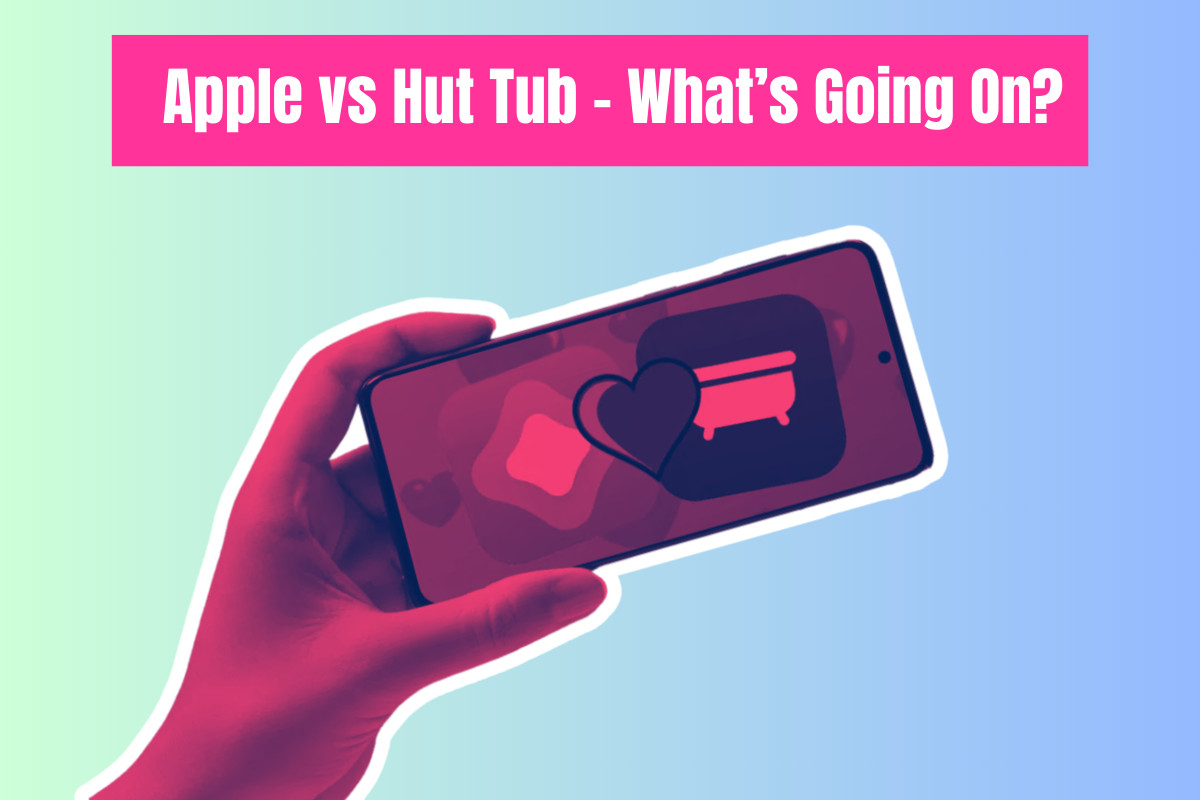TL;DR – Apple argues that the app threatens child safety, security, and trust in its ecosystem
Apple is taking a strong stance against the Hot Tub app, an adult content platform launched via AltStore, a third-party app store enabled by the EU’s Digital Markets Act (DMA).
- Child Safety Risks – Apple warns that apps like Hot Tub could expose children to explicit content.
- Undermining Apple’s Ecosystem – The company sees third-party app stores as a threat to its carefully curated platform.
- Malware Concerns – Apple argues that alternative app stores lack its strict security standards.
- Regulatory Clash – The DMA forces Apple to allow apps it would normally reject, sparking conflict with EU regulators.
- Freedom vs. Control – Critics question why Apple restricts explicit apps when users can already access similar content via web browsers.
Get the big picture in more detail below…
Apple is not happy about the Hot Tub app, and it’s making that very clear.
The app, which provides access to adult content, launched via AltStore—one of the first third-party app stores enabled by the EU’s Digital Markets Act (DMA).
But Apple isn’t just opposing it; the company is actively fighting against it.
12 REASONS WHY APPLE HAS GONE TO WAR WITH HOT TUB

1. Child Safety Concerns
Apple is deeply worried about how pornographic apps could expose children to explicit content, especially in regions where parental controls might not be enforced.
2. Undermining Trust in Apple’s Ecosystem
Apple has spent years building a secure and controlled platform. Allowing apps like Hot Tub threatens the trust users have in Apple’s ecosystem.
3. Misrepresentation by AltStore
AltStore marketed Hot Tub as “Apple-approved,” which Apple has outright denied. The company says this misleads users into thinking Apple endorses the app.
4. Violation of App Store Policies
Apple has a strict ban on overtly sexual and pornographic material in its App Store. Hot Tub bypasses those rules through AltStore, something Apple strongly opposes.
5. Potential Malware Risks
Third-party app stores don’t have Apple’s security checks, increasing the risk of malware, scams, and security breaches for iPhone users.
6. Damage to Apple’s Reputation
If users experience problems with third-party apps like Hot Tub, they might still blame Apple, potentially harming the company’s reputation.
7. Apple’s Moral Stance on Adult Content
Apple has long positioned itself as a family-friendly brand. It sees restricting adult content on its platform as part of its “moral responsibility.”
8. Loss of Content Control
The DMA forces Apple to allow apps it wouldn’t normally approve, limiting its ability to curate content and enforce its strict content guidelines.
9. Regulatory Concerns
Apple has already raised concerns about apps like Hot Tub with the European Commission, but regulators have not taken preventive action.
10. User Protection Priorities
Apple argues that allowing apps like Hot Tub compromises user safety, which it prioritises above all else.
11. Threat to Apple’s Ecosystem Integrity
Apple has spent over a decade building what it considers the world’s best and most secure mobile ecosystem. It sees apps like Hot Tub as a direct threat to that vision.
12. Ethical Implications of Easily Accessible Pornography
Apple likely has broader concerns about how making pornography more accessible through third-party app stores could impact users and society as a whole.
Final Thoughts: Is Apple Right To Block NSFW Apps?

Apple’s opposition to Hot Tub isn’t just about one app—it’s about control, safety, and the future of its ecosystem.
The company argues that apps like this pose real risks, particularly for children, and undermine the trust it has carefully built with users.
For years, Apple has enforced strict policies against pornography on its platform, and it’s clear it doesn’t want that to change.
On the other side, AltStore and its developers insist that they followed the rules Apple itself set under the EU’s Digital Markets Act (DMA).
They argue that Apple approved the app for distribution, and now, the company is trying to shift blame.
Supporters of the DMA, like Epic Games’ Tim Sweeney, believe Apple has long restricted competition and shouldn’t interfere with developers’ ability to distribute apps freely.
Apple is being extremely disingenuous in attacking the European Union here. The iOS App Store hosts the Reddit app, which provides access to massive amounts of porn. Apple knows this, permits it, and gave Reddit a 17+ (!!!) rating and Editors Choice award. […]
As a recently deleted (by who?) post on the r/iOS subreddit explains, Apple’s iOS App Store welcomes apps that host tons of porn, as Reddit does, as long as the majority of the content isn’t porn, and the app has controls to hide the porn.
This debate also raises a bigger question: Is Apple’s stance about user safety or about maintaining control?
While Apple believes it has a moral responsibility to keep explicit content off iPhones, critics point out that users can already access pornography through web browsers.
If people want this content, should Apple be the one to stop them?
At the heart of this battle is a clash between security and freedom of choice.
Apple prioritises its walled-garden approach, while regulators and developers push for more openness.
The existence of apps like Hot Tub suggests there’s a market demand that challenges Apple’s long-standing approach.
With third-party app stores now a reality in the EU, this fight is just beginning.
Will Apple find new ways to enforce its standards, or will developers and regulators force the company to adapt?
Want to stay ahead of the biggest mobile tech battles? Subscribe to our newsletter for the latest updates!


